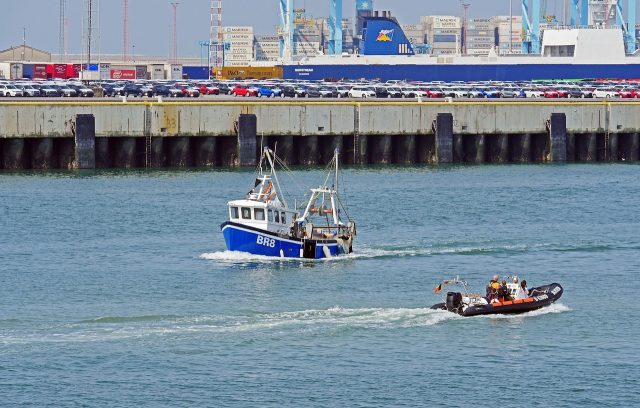
Brussels removes duties on American industrial goods as Europe’s carmakers gain relief—but farmers warn of risks
The European Union has taken a significant step toward stabilizing transatlantic trade relations by formally eliminating tariffs on a range of American industrial goods. The move, announced by the European Commission this week, delivers on commitments made in the EU-U.S. joint declaration signed in late July. In exchange, Washington has agreed to reduce duties on European cars and auto components from 27.5% to 15%, retroactively effective from August 1.
For Europe, the headline figure is striking: the tariff reduction on automobiles alone is expected to save EU carmakers more than €500 million in duties in just one month, according to Commission estimates. The decision provides immediate relief to an industry that remains central to the bloc’s economy and employment base, while also offering a tangible sign that Brussels and Washington are capable of working together on contested trade issues.
A Breakthrough for Europe’s Auto Sector
The most immediate beneficiaries are Europe’s auto giants, from Germany’s Volkswagen, BMW, and Mercedes-Benz to Italy’s Stellantis. For years, European carmakers have been targeted by high U.S. import duties, a recurring source of friction in transatlantic trade. By capping tariffs at 15%, the agreement delivers breathing space to an industry already grappling with rising costs, a transition to electric vehicles, and fierce global competition.
Maroš Šefčovič, the EU Commissioner for Trade, welcomed the outcome on social media, calling it “a step forward toward stability and a foundation for genuine cooperation on shared challenges, such as steel.” He described the 15% ceiling on auto tariffs as “both a relief and a boost for our industry.”
The deal reflects a broader recognition that, despite disagreements, the EU and the U.S. need to safeguard their trade partnership at a time of geopolitical uncertainty. With China asserting itself in global supply chains and ongoing wars straining economies, both sides see advantages in reducing commercial friction.
Two Key Measures from Brussels
To implement the July agreement, the Commission presented two legislative proposals. The first eliminates EU tariffs on U.S. industrial goods while granting preferential access to certain American seafood products and non-sensitive agricultural items. The second extends the EU’s existing tariff exemption for American lobster, now covering processed lobster products as well.
Together, these measures constitute the legal framework needed to activate Washington’s reciprocal reduction of auto tariffs. By moving swiftly, Brussels ensured that American duties on European cars and parts dropped retroactively as of August 1, rather than being delayed by prolonged legislative wrangling. Commission officials underscored that these steps are part of a broader effort to negotiate a future EU-U.S. agreement on fair and balanced trade, potentially covering additional tariff reductions across multiple sectors.
Concerns from European Agriculture
Yet not everyone in Europe is celebrating. Agricultural groups, particularly in Italy, have voiced strong criticism of the deal, warning that the EU may have sacrificed too much of its agri-food sector to secure concessions for the automotive industry.
Cia–Agricoltori Italiani, one of Italy’s leading farmers’ associations, described the accord as “a surrender” that risks undermining a vital export sector. Italian agri-food exports to the U.S. are worth €7.8 billion annually, with wine accounting for a substantial share. According to Cia, these products could face heightened competition from U.S. agricultural imports gaining easier access to the EU market.
“The agreement on 15% tariffs looks increasingly like a major sacrifice of agri-food,” the organization declared. President Cristiano Fini warned that “beyond the current political closure on wine, we must carefully monitor the eased entry of U.S. agricultural products regardless of reciprocity. That is a red line.” Farmers argue that without strong safeguards, the influx of American goods could distort competition, damage local supply chains, and trigger job losses in Europe’s food sector.
Balancing Industry and Agriculture
The divergent reactions highlight a long-standing tension in EU trade policy: how to balance the interests of Europe’s powerful industrial base with those of its equally vital agricultural producers. For Brussels, the car sector is strategically crucial, representing millions of jobs, technological innovation, and a key export pillar. At the same time, agriculture is not only an economic lifeline for many regions but also a symbol of cultural heritage and quality standards.
The Commission has sought to reassure critics by emphasizing that the agreement focuses on non-sensitive agricultural goods and does not undermine EU food safety rules. Still, the perception that farmers are being sidelined for the benefit of industrial giants could fuel political discontent, especially in countries like Italy, France, and Spain where agriculture remains politically influential.
A Step Toward Stability, with Risks Ahead
For now, Brussels is framing the deal as a win for Europe’s economy, easing tensions with Washington and delivering immediate savings to the auto sector. But the criticism from farmers underscores the fragility of consensus around trade policy in the EU.
If the agreement succeeds in laying the groundwork for a broader, balanced trade pact with the United States, it may be remembered as a turning point in strengthening the transatlantic alliance. If, however, agricultural concerns deepen and are not addressed, the deal could spark domestic pushback that weakens public trust in EU trade negotiations. Either way, the latest steps reflect a broader truth: in a turbulent global economy, Europe sees cooperation with the U.S. as indispensable—but not without costs and hard choices.



 Subscribe
Subscribe